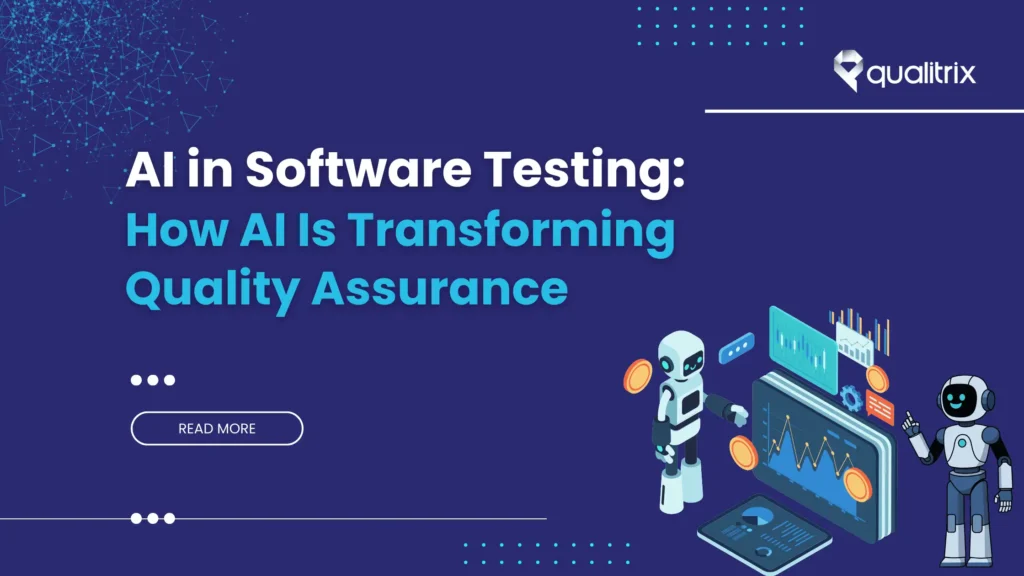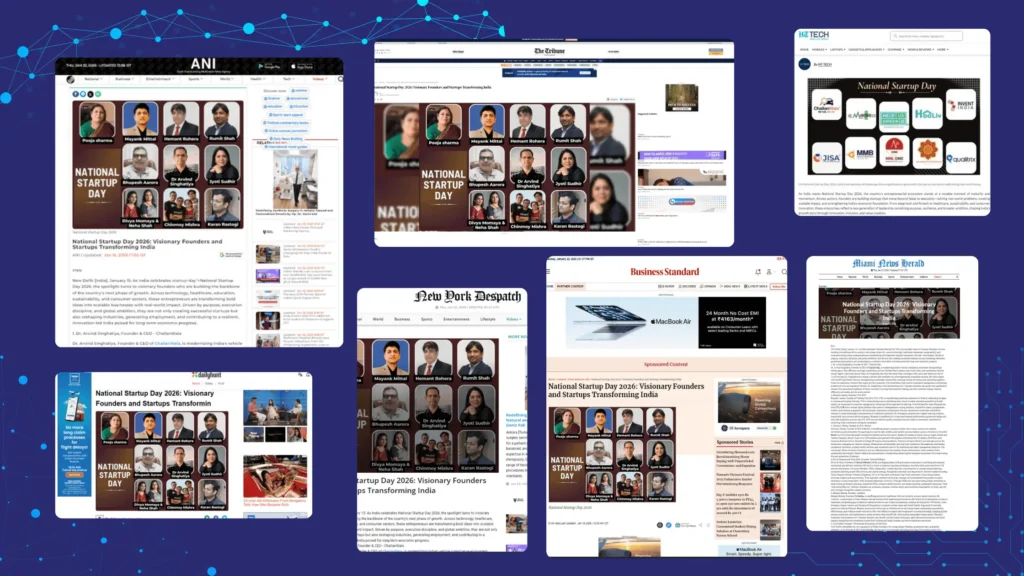Build-Operate-Transfer (BOT): The Fastest Way to Stand Up a QA Center for Your India GCC

Build-Operate-Transfer (BOT) Home Blog Build-Operate-Transfer (BOT): The Fastest Way to Stand Up a QA Center for Your India GCC For mid-sized enterprises building Global Capability Centers (GCCs) in India, setting up QA is rarely a delivery issue—it is a strategic setup challenge. Leadership spends months on hiring, tooling, and operating model debates while fixed costs…
AI in Software Testing: How AI Is Transforming Quality Assurance

AI in Software Testing Home Blog AI in Software Testing: How AI Is Transforming Quality Assurance Software is everywhere today from mobile apps and websites to banking systems and payment platforms. As software becomes more complex, quality assurance (QA) has become more important than ever. Users expect applications to be fast, secure, and error free.…
Qualitrix Featured on National Startup Day 2026 | ANI, Business Standard and more

Qualitrix Recognized Among Visionary Founders on National Startup Day 2026 Home Blog Testing Salesforce Applications: The Modern Automation Approach Enterprises Really Need On the occasion of National Startup Day 2026, several leading national and business publications featured founders and organisations contributing to India’s evolving technology and innovation ecosystem. Qualitrix was recognised among this group of…
Revolutionize Your Salesforce Releases: How AI is Turbocharging Testing for Speed and Quality

Revolutionize Your Salesforce Releases: How AI-Driven Testing Accelerates Speed and Quality Home Blog The Salesforce Testing Challenge: Why Traditional Methods Fail Salesforce is a powerhouse for businesses, driving sales, service, and marketing. Butwith its rapid release cycles and complex customizations, ensuring the quality of everyupdate can feel like an uphill battle. Traditional testing methods often…
Testing Salesforce Applications: The Modern Automation Approach Enterprises Really Need

Testing Salesforce Applications: The Modern Automation Approach Enterprises Really Need Home Blog Testing Salesforce Applications: The Modern Automation Approach Enterprises Really Need Salesforce sits at the heart of enterprise operations today, powering sales, service, marketing, partner management, and complex customer workflows. As organizations scale their Salesforce implementations—with custom objects, Lightning components, integrations, and workflows—the complexity…
Qualitrix Recognized as a Major Contender in Everest Group 2025 Quality Engineering QE Specialist Services PEAK Matrix Assessment

Wilmington, USA / Bangalore, India – November 4 2025 Qualitrix, a fast-growing AI-driven Quality Engineering and Digital Assurance company, has been recognized as a Major Contender in Everest Group’s 2025 Quality Engineering (QE) Specialist Services PEAK Matrix® Assessment. The Everest Group PEAK Matrix® is a globally recognized benchmark that evaluates service providers on two key…
Best Testing Service Providers in Bangalore: Why Businesses Choose Qualitrix

Best Testing Service Providers in Bangalore, India. Home Blog Best Testing Service Providers in Bangalore: Why Businesses Choose Qualitrix Bangalore, India’s tech powerhouse, is home to some of the fastest-growing startups, unicorns, and global technology hubs. With this rapid growth comes an equally high demand for delivering flawless digital experiences. Businesses today cannot afford slow…
Stop AI Hallucinations in Software Testing: Why Context Engineering is Your New MVP

Stop AI Hallucinations in Software Testing: Why Context Engineering is Your New MVP Home Blog Stop AI Hallucinations in Software Testing: Why Context Engineering is Your New MVP The rapid growth of Artificial Intelligence (AI) promises to revolutionize software testing, offering unprecedented gains in both speed and accuracy. However, to truly harness this power, the…
How We Use AI to Accelerate QA in Agile and DevOps Environments

How AI Accelerates QA in Agile & DevOps Environments Home Blog How AI Accelerates QA in Agile & DevOps Environments Agile and DevOps have redefined how modern software is built and delivered—demanding faster releases without compromising quality. As development cycles shorten and deployments become continuous, quality assurance (QA) must evolve to match the pace. Artificial…
Performance Testing: An In-Depth Guide for Maximizing Application Efficiency

Performance Testing: An In-Depth Guide for Maximizing Application Efficiency Home Blog Performance Testing: An In-Depth Guide for Maximizing Application Efficiency Test AutomationIn today’s digital landscape, ensuring that your application performs well under various conditions is crucial for success. Performance testing is a critical part of software development and quality assurance, aiming to validate the speed,…
